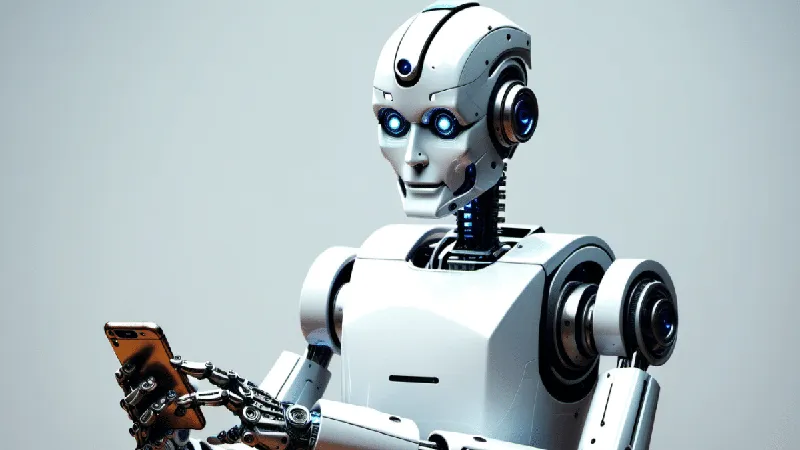The world of artificial intelligence is once again buzzing with news that could reshape its landscape. A recent report from The Wall Street Journal revealed that Elon Musk, the billionaire entrepreneur and co-founder of OpenAI, is making a bold bid of $97.4 billion to acquire the organization’s for-profit arm. Musk’s ambition to transform OpenAI back to its open-source roots raises significant questions about the future of AI technology and its governance. As the saga unfolds, we must consider the implications of such a takeover: would users remain loyal to OpenAI’s products, or would they seek alternatives in response to Musk’s controversial leadership?
| Key Information | Details | Quotes | Context | ||
|---|---|---|---|---|---|
| Elon Musk’s Takeover Bid | A bid of $97.4 billion to acquire OpenAI’s for-profit subsidiary was presented by Elon Musk and a consortium of private investors. | “It’s time for OpenAI to return to the open-source, safety-focused force for good it once was.” | |||
| Musk’s Motivation | Musk aims to make OpenAI open-source, aligning with its original mission of delivering AI benefits for everyone. | ||||
| Background on Musk and OpenAI | Musk co-founded OpenAI in 2015 but left in 2018, later criticizing it publicly. He has since created his own AI startup, xAI. | ||||
| Response from Sam Altman | Altman dismissed Musk’s bid on social media, suggesting an unwillingness to sell. | “no thank you, but we will buy Twitter for $9.74 billion if you want.” | |||
| Public Reaction and Concerns | Concerns arise about Musk’s political views and their potential impact on OpenAI’s products and user base. | Would you continue to use OpenAI’s products if Musk took over? | |||
| Comparison with Other AI Models | Musk’s Grok AI model is seen as more open compared to competitors, leading to mixed feelings about the takeover. | Musk’s Grok AI model has enabled a much more freewheeling and freeform expression. | |||
The Potential Impact of Musk’s Takeover on OpenAI
If Elon Musk successfully takes over OpenAI, the impact could be significant for the AI community and users alike. Musk has a history of promoting open-source principles and may push for more transparency in AI development. This could lead to improvements in safety and accessibility, aligning with the original mission of OpenAI to benefit everyone. Many users might appreciate a shift towards a more open environment where AI tools are available for all.
However, a takeover might also raise concerns about the direction OpenAI would take under Musk’s leadership. Given his controversial remarks and political affiliations, some users may worry about censorship and the potential for biased outputs. A balance would need to be struck between freedom of expression and responsible AI usage, ensuring that the technology remains ethical and beneficial for the public.
Frequently Asked Questions
What is Elon Musk’s bid for OpenAI about?
Elon Musk has offered $97.4 billion to acquire OpenAI’s for-profit subsidiary, aiming to return it to its original open-source mission.
Why did Musk leave OpenAI in 2018?
Musk left OpenAI in 2018 after co-founding it. He has since criticized the company while developing his own AI startup, xAI.
What does Musk want to change about OpenAI?
Musk aims to make OpenAI more open-source and safety-focused, aligning it with its founding goals of benefiting everyone with AI.
How has Musk’s takeover bid impacted OpenAI’s plans?
Musk’s bid complicates OpenAI’s plans to separate its for-profit arm from its non-profit side, affecting its future operations.
Will users stop using OpenAI products if Musk takes over?
Many users are considering their options, weighing whether to continue using OpenAI products like ChatGPT if Musk assumes control.
What are the implications of Musk’s political views on OpenAI?
Musk’s controversial political views raise concerns among users about how they might affect OpenAI’s products and policies.
Is Musk’s Grok AI model competitive with OpenAI?
Despite being a competitor, Musk’s Grok AI model has not yet attracted as many users as OpenAI’s models, indicating a tough market.
Summary
Elon Musk has made a surprising bid of $97.4 billion to take over OpenAI, aiming to return the company to its open-source roots. This move is personal for Musk, who co-founded OpenAI but left in 2018 to become a critic and competitor. Despite launching his own AI startup, he hasn’t attracted as many users as expected. Musk’s bid raises questions about the future of OpenAI’s products like ChatGPT, with many users wondering whether they would continue to use them if Musk takes control. The situation highlights Musk’s influence in the tech world and the ongoing competition in AI development.
